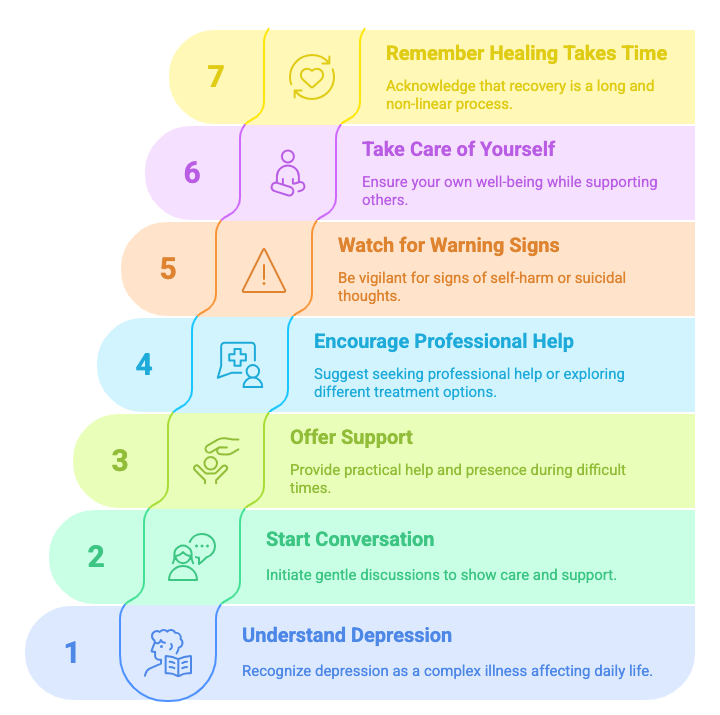How Do I Help A Loved One With Major Depression?
Knowing someone in your life with major depression can be a very painful and scary experience. Especially when you don’t know what to do or say to help them. While you can’t “fix” their depression, the support you offer them can make a huge difference in their mental health journey. In this article, we will discuss some of the ways you can show up and support them through this difficult time.
1. Understand What They Are Going Through
The first thing to understand is that major depression is more than just feeling sad. Depression can impact how a person sleeps, eats, thinks, and feels. It can make them feel detached, irritable, or even numb. Simple tasks like answering texts, taking a shower, or even getting out of bed can feel almost impossible. When you start to learn more about depression and understand that it is an illness, not a personal failing or laziness, it allows you to respond out of empathy rather than frustration.
2. Start the Conversation Gently
It’s difficult to know how to start the conversation and bring up your concerns about their mental health. You should avoid saying things that minimize their pain or make them feel misunderstood. Don’t worry about finding the perfect words, you just need to focus on letting them know you care and you are there to support them. For example, you might start by saying:
- “I know you have been having a hard time recently, and I’m here if you want to talk.”
- “You don’t have to go through this alone.”
- “I may not fully understand what you are going through, but I want to help in whatever way I can.”
3. Offer Them Support
At times, the best thing to do is simply be there. Be there with them in those quiet moments. Send a text to check in. Offer to help them with everyday tasks like grocery shopping or driving them to appointments. It’s okay if they are not ready to fully open up and talk to you yet. Just keep showing up in small ways. Consistency is what matters more, you want them to know that you’ll be there when they are ready.
4. Gently Encourage Professional Help
While offering support makes a huge difference to someone suffering from depression, you cannot and should not take on the role of their therapist. You might encourage them to reach out to a doctor or other mental health professional. You can offer to help them with finding a therapist or understanding treatment options.
If they have exhausted therapy or medications and have not found relief, alternatives such as TMS or Spravato may be worth exploring. Both treatments are FDA-approved for people with treatment-resistant depression and have been life-changing for many.
5. Watch for Warning Signs
If your loved one expresses feelings of hopelessness, worthlessness, or self-harm or suicidal ideation, take it seriously. If they are in imminent danger, call 988 (Suicide & Crisis Lifeline), go to the ER, or call emergency services. It is better to overreact than to miss the signs.
6. Take Care of Yourself Too
If you’re supporting someone battling depression, it can really take a toll on you as well. It’s emotionally draining, and you might find yourself feeling overwhelmed or even discouraged. That’s why it’s crucial to establish some boundaries for your own well-being. You deserve to have your own support network, whether that’s friends, therapy, or a support group. Remember, helping someone doesn’t mean you should compromise your own mental health.
7. Remember Healing Takes Time
Recovering from depression is almost never linear. They will have good days and bad days. Understand that you will most likely experience some setbacks, resistance to treatment, or even silence. These moments do not mean your support isn’t helping. Even if some days don’t feel like it, your presence sends a powerful message: you are not alone, I’m still here.

Helping someone with major depression isn’t about “fixing” them, but rather walking beside them. Your presence, patience, and encouragement can be a lifeline to them during their darkest moments. When paired with professional care, your support becomes part of a larger healing process.
If you want to learn more about advanced treatment options like TMS or Spravato, visit MDDCare.com to find out more, or to find a clinic near you.
